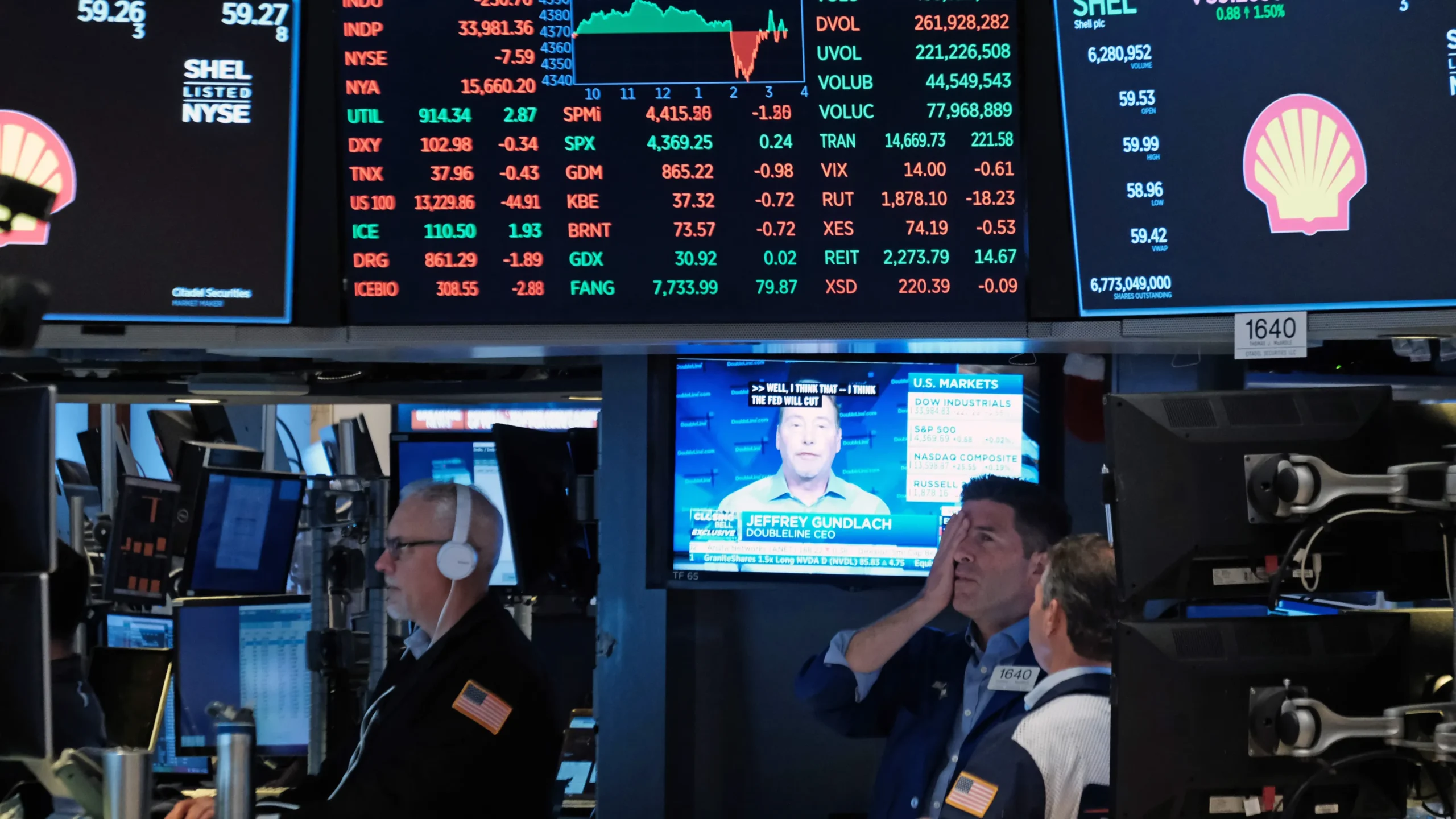US Stock Market Faces Setback Amidst Record Highs for Bitcoin
On Tuesday, Wall Street witnessed a significant downturn with all three major U.S. stock indexes experiencing declines of 1% or more, with the Nasdaq, dominated by tech stocks, suffering the most substantial loss. This market shift occurred simultaneously with record highs for both bitcoin and gold, highlighting the complex dynamics at play in global financial markets.
Tom Hainlin, the national investment strategist at U.S. Bank Wealth Management, noted the prevailing sentiment: “This seems to be a day when bad news is bad news.” The market response appeared to be more influenced by concerns about a slowing economy than speculations on the frequency of potential interest rate cuts by the Federal Reserve.
Bitcoin, a cryptocurrency often considered a barometer for market sentiment, briefly touched an all-time high before retracting. It ended the day down 7.6% at $62,380. Chuck Carlson, CEO of Horizon Investment Services, suggested that investors, having witnessed a substantial stock market rally, were exploring alternative avenues for returns, contributing to the surge in bitcoin prices.
Gold also reached an unprecedented high, propelled by expectations of interest rate cuts. Hainlin drew a connection between weaker economic data, the anticipation of Fed rate cuts, and increased support for gold. The precious metal has historically been seen as a hedge against economic uncertainty.
The economic data released on the same day added fuel to the cautious market atmosphere. Reports indicated a slowdown in the expansion of the U.S. services sector and a more significant-than-expected decline in new factory orders. The Dow Jones Industrial Average fell 1.04%, the S&P 500 lost 1.02%, and the Nasdaq Composite dropped 1.65%.
In global markets, European shares ended lower after China’s attempts to stimulate its economy failed to impress investors. Concerns grew ahead of economic data releases in the Eurozone and the U.S., coupled with a policy decision from the European Central Bank. The pan-European STOXX 600 index and MSCI’s global stocks gauge both experienced declines, reflecting a broader unease.
Emerging market stocks and Asia-Pacific shares outside Japan also recorded losses, underscoring the interconnectedness of global markets. Japan’s Nikkei, however, saw a marginal decrease of 0.03%. The synchronized movements across diverse asset classes and regions emphasize the intricate web of factors influencing today’s interconnected financial landscape.



















